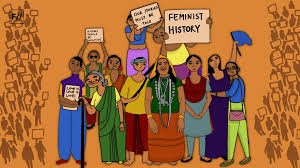Pareeshe Fatima
Syed Sibt-e-Asghar Naqvi, known by his pen name Jaun Elia, was a renowned Pakistani poet, philosopher, biographer, and scholar. He was widely recognized as one of the most prominent modern Urdu poets, celebrated for his unconventional and unique style. Jaun Elia’s extensive knowledge in various fields such as philosophy, logic, Islamic history, the Muslim Sufi tradition, Muslim religious sciences, Western literature, and Kabbala was greatly influenced by his multilingualism. He was fluent in Urdu, Arabic, Sindhi, English, Persian, Sanskrit, and Hebrew, which allowed him to draw from a diverse range of literary traditions and enrich Urdu literature with his unique perspective.
Born on December 14, 1931, in Amroha, British India, Jaun Elia belonged to a highly educated and influential Shia family. His father, Shafiq Elia, was a Shia Muslim and a scholar well-versed in literature and astronomy, proficient in several languages. Despite being a Shia Muslim, Jaun Elia initially received his education at the Syed-ul-Madaris in Amroha, a madrasa affiliated with the Darul Uloom Deoband. He married writer Zahida Hina in 1970, but they separated in 1992.
Jaun Elia’s journey as a poet began at the tender age of 8, a testament to his early talent and dedication. He published his first collection, Shayad, at the age of 60. His political views, which opposed the partition of India despite his communist beliefs, are reflected in his poems. He migrated to Pakistan in 1957 and settled in Karachi, where he continued to express his support for communism and address class consciousness in his poetry.
Pl subscribe to the YouTube channel of republicpolicy.com
Jaun Elia’s influence extends beyond his own works, shaping the art of contemporary artists. His profound impact can be seen in the works of Punjabi rapper Kay Kap, Pakistani rock-fusion band Nishtar Park, and Urdu rapper Talha Anjum. These artists have incorporated his poems into their musical compositions, demonstrating the enduring relevance of his poetry.
Apart from his poetry, Jaun Elia was also an accomplished editor and translator. His translations from Arabic and Persian, such as Masih-i-Baghdad Hallaj, Jometria, Tawasin, and Hasan bin Sabah, have not only preserved these works but also contributed new words and concepts to the Urdu language. His translations played a significant role in enriching Urdu literature and expanding its horizons, showcasing his versatility as a writer.
Jaun Elia’s poetry collections include Sukhan Meri Udasee Hai, Zakham-e-Umeed, Mubada, Tumharey Aur Mere Darmiyan, Daricha Haye Kheyal, Qitaat, Jaun Elia Ki Tamam Ghazlain (parts I-III), Inshaye aur Mazaameen, Farnood, Is Rang Ke Tufaan, Shayad, Firaaq, Lekin, Goya, and Gumaan. His prose works mainly consist of translations of works from Arabic and Persian such as Masih-i-Baghdad Hallaj, Jometria, Tawasin, and Rasail Ikhwan al Safa, among others.
















